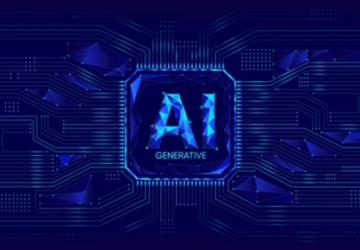Digital transformation is a path paved with difficulties, but it’s the only possible way to avoid falling behind the competition. In the industrial sector, the obstacles are proportional to the promises of Industry 4.0 and the plethora of underlying technologies: IoT, AI, virtual reality, blockchain, digital twin…
However, before being a technological issue, digital transformation is primarily based on the human factor and the diffusion of a culture of innovation, as well as on informed strategic choices.
Putting the human factor at the heart of every transformation project
Understanding and Overcoming Resistance to Change
The biggest mistake one can make in the context of a digital transformation project is to neglect the importance of the human factor in its success. Reducing a project to its technological components amounts to omitting a fundamental variable from the equation: human psychology. Because in the end, it’s the team members who will bring to life the tools, methods, and processes that you put in their hands. In other words, the success of the project as a whole largely depends on how well you’ve managed to gain everyone’s support.

The enemy of innovation in business is resistance to change. And to defeat this adversary, it is essential to identify it in all its forms and understand its mechanisms. Here is a non-exhaustive list of obstacles you must overcome to make an innovative project successful in a business setting:
- Lack of consultation: The feeling of having no say in the digital transformation process can generate resistance. To avoid this, it is important to involve employees from the beginning of the process, for example during the demonstration of a digital tool. This can strengthen their sense of belonging to the company and their commitment to the solution.
- Bad communication: Knowing how to get a message across to a team is an art that must be mastered to ensure successful change management. Team members need to understand the ‘why’ and the ‘how’ of a project in order to buy into it. What is the objective of this project? How will it affect their daily work? Open, honest, and regular communication can help overcome this barrier.
- Fear of the unknown: It is natural to be wary of what we do not know. To counter this fear, it is essential to continuously educate team members about new tools and methods.
- Mistrust towards a technology: ‘gadget,’ ‘fad,’ ‘mirage’… an innovation is not fully accepted until its added value is demonstrated. To overcome this healthy skepticism, demonstrations and trials are better than long speeches.
- Lack of skills: The arrival of a new tool can create a feeling of discomfort, particularly among employees who are less receptive to digital technology. And for good reason, no one likes to feel overwhelmed. Appropriate training and ongoing support are essential to help employees acquire the necessary skills..
- Lack of stability and fatigue: innovating does not mean ‘flip-flopping.’ Digital transformation requires a certain level of stability to avoid creating a fatigue of change. To limit this resistance, it is essential to introduce changes in a gradual manner.
In industry as well as in other sectors, it is essential to understand the psychological barriers that hinder individuals’ acceptance of change. At the organizational level, and from a structuring perspective, digital transformation involves establishing a culture of innovation.
Establish a culture of innovation
Adopting new technologies is not limited to acquiring tools or technical skills; it also involves changing mindsets and work habits. And this change starts with leadership: the senior executives of the company or of a multi-stakeholder project must be committed to innovation by supporting innovative initiatives, valuing new ideas, and encouraging risk-taking.
More broadly, establishing a culture of innovation requires encouraging each member of the company to consider the possibilities offered by digital technology and to contribute to their implementation. This means creating an environment where new ideas are valued, experimentation is encouraged, and failures are seen as learning opportunities rather than faults.
To do this, it is essential to raise awareness and train employees in digital innovations. Workshops, seminars, and training courses can be organized to enable employees to discover and understand new technologies, their challenges, and opportunities.
Develop a digital strategy to address the challenges of Industry 4.0
In the face of the economic challenges of digital transformation, industrial companies cannot afford to navigate blindly. Developing a digital strategy is essential for having a clear understanding of the investments to be made and the actions to put in place to make them profitable through teams.

Prioritize projects that maximize return on investment
Digital transformation is a process that can be extremely costly in terms of time and resources. In this context, making poor investment choices can prove to be detrimental. That’s why it is crucial to prioritize projects that offer the best return on investment. This strategic approach begins with an objective evaluation of the current state of the company and the identification of high-potential use cases.
In this perspective, the focus should be on technological tools that optimize the dissemination of information and collaborative work, which are two major areas for improvement in industrial projects across all sectors. Through these types of tools, the strategic objective should be to catalyze operational efficiency. Collaborative platforms, real-time information management systems, and intelligent automation technologies, for example, can reduce errors, increase response speed, and improve overall productivity.
The implementation of collaborative solutions can eliminate communication bottlenecks and improve coordination between teams. This allows aligning everyone’s efforts toward common goals and improving operational efficiency. Additionally, increased transparency and real-time access to information enable quicker and more accurate decision-making.
Similarly, the integration of AI-based automation tools allows for the identification and elimination of inefficiencies in existing processes. This type of technology can help your teams analyze performance data in real time to identify problems before they become critical, thereby reducing the risk of errors and time loss.
Supporting transformation by accompanying the teams.

In any case, for digital transformation investments to bear fruit, dedicated support for teams is essential. This first involves promoting the dissemination of the skills required for the implementation of adopted solutions. Depending on factors such as cost, time, and the complexity of the technology to be adopted, this may require the hiring of new talents or the training of existing teams in the use of these new tools.
Next, the judicious allocation of resources—whether human, material, or financial—is an essential condition for facilitating the implementation of digital transformation. This requires anticipating future needs, strategically planning expenditures, and ensuring that all resources are employed in the most efficient manner.
The digital transformation in the industry relies primarily on the human factor and the dissemination of a culture of innovation, as well as on a clear strategy. To make the most of technologies such as AI, collaborative platforms, digital twins, or virtual reality, it is essential to focus on return on investment and to overcome resistance to change by involving teams in this transformation.
Better understand the possibilities of SmartShape?
Schedule a demo

